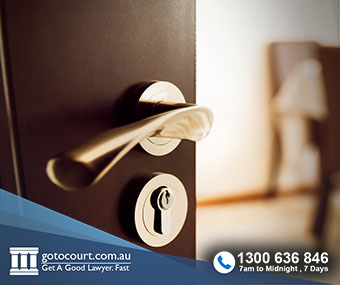Excessive Noise (NT)
Neighbour disputes can arise from a variety of everyday issues. One common cause of complaints is excessive noise coming from the property next door. With a neighbour dispute, the first step is communication, with the parties trying to come to an agreement privately. However, there are other approaches that a neighbour can take to address excessive noise in the Northern Territory. This article defines excessive noise in the Northern Territory and explains methods to resolve neighbour disputes.
Excessive noise in the Northern Territory
It is not unusual for neighbours to complain of excessive noise, especially in residential areas with small block sizes. Noise is legally considered to be excessive when it is harmful to someone outside the property or unreasonably interferes with a neighbour’s quiet enjoyment of their home. This may be because of the volume of the noise, its nature or the time it occurs.
The Northern Territory Noise Management Framework Guideline specifies the types of noises that are acceptable at any given time and how a community member can make a complaint about excessive noise. In residential areas, noise should not be audible from within a neighbour’s “habitable” rooms during certain hours on specific days. Habitable rooms are areas of the home that are not a storage area, garage, laundry, bathroom, toilet or pantry. These guidelines are intended to minimise excessive noise reaching bedrooms and living areas at times when people rest or sleep.
Common sources of excessive noise
The most common neighbourhood complaints about excessive noise relate to people, animals and party noise.
Party noise is one area where pre-planning and communication can help avoid complaints. Neighbours will usually tolerate a one-off party if they have been advised in advance of the date (so they can make alternative arrangements), the time that music will be turned down, and a contact number in case the neighbour needs to complain directly to the party host. Even so, hosts should limit the use of outdoor speakers and ensure that music is kept to an acceptable volume. Unfortunately, and especially when alcohol is involved, a party can rapidly escalate to anti-social behaviour. When a neighbour or their guest is yelling or screaming, damaging property or harassing neighbours, this is best handled by the Northern Territory Police Force.
A neighbour who has issues with excessive barking dog noise can make a complaint under the Local Government Act 2008 or local by-laws. Generally, a council will undertake a nuisance barking investigation when a dog barks for more than three minutes in any 30-minute period between 10 pm and 7 am, or exceeds six minutes in an hour period between 7 am and 10 pm. Investigations are unlikely when the barking is provoked in some manner, such as through physical or verbal abuse, sirens, fireworks storms, delivery people, or trespassers.
To determine the extent of the nuisance, the council will provide the neighbour with a barking diary, and they will be asked to keep note of the nuisance barking over a given period. The council will issue the dog owner with a notice informing them of the nuisance barking allegation. If the council determines that this excessive noise presents a nuisance or hazard, it will typically provide advice to the owner on how to reduce the nuisance. If the complaint remains unresolved, the council can issue a regulatory order or fine to the dog owner. If the dog is the subject of multiple and continuous complaints, the council may attempt to cancel the dog’s registration, issue a warrant to remove the dog and even seize the dog for impoundment, rehoming or euthanisation.
Vehicles
Motor vehicles should not be heard in the Northern Territory (except when leaving or arriving) before 7 am and after 8 pm on weekdays and 8 am and after 8 pm on weekends and public holidays.
Fixed equipment
When residents install fixed equipment in their homes, such as air conditioners and swimming pool pumps, they should consider the noise impact on their neighbours. It is wiser and usually cheaper to install appropriate equipment rather than try and fix excessive noise problems later. This equipment should only be operated during specific time periods and must operate according to recommended noise levels. If this equipment creates excessive noise outside recommended levels, it may interfere with the neighbour’s enjoyment of their own properties.
Non-fixed equipment
Domestic noise is also emitted from machinery or tools that are not fixed in position on a property. Non-fixed equipment includes power tools, lawn mowers and other machines that can be moved around the property. This equipment can emit significant noise but generally is only used for a finite amount of time. This equipment should only be used during the permitted hours.
Resolving excessive noise disputes
The first step in a neighbourhood dispute is to talk over the matter and discuss possible solutions. A person can request that their neighbour stop or reduce their excessive noise or restrict the noise to certain hours of the day. Sometimes a resident is not even aware that their activities are presenting a problem for their neighbour. In that case, a solution can be found to satisfy all parties. If it is not possible to talk directly with a neighbour, a mediator may be able to support both parties to reach a solution before escalating to litigation or police.
Noise abatement orders
Excessive noise can constitute undue noise prohibited by the Summary Offences Act 1923. In that case, the police will direct the resident to stop making excessive noise. If the neighbour does not comply in ten minutes, they are liable for a fine of up to $2,000.
A neighbour can also apply to the Local Court for a noise abatement order. The neighbour must serve a Noise Abatement form on their neighbour, summoning them to court. If the court finds the complaint valid, it can order the resident to act to reduce or stop their noise or regulate the hours that the resident makes the excessive noise. The court may also levy a fine on the resident.
The neighbour might also choose to make a civil claim for nuisance if the excessive noise unreasonably interferes with their use and enjoyment of their property. The court would need evidence that the noise presents a nuisance. If successful, the claimant can receive compensation for the damages they have experienced.
Go To Court Lawyers can help with any questions about excessive noise complaints in the Northern Territory. Please call 1300 636 846 or contact the team for legal advice or representation in the Northern Territory.








